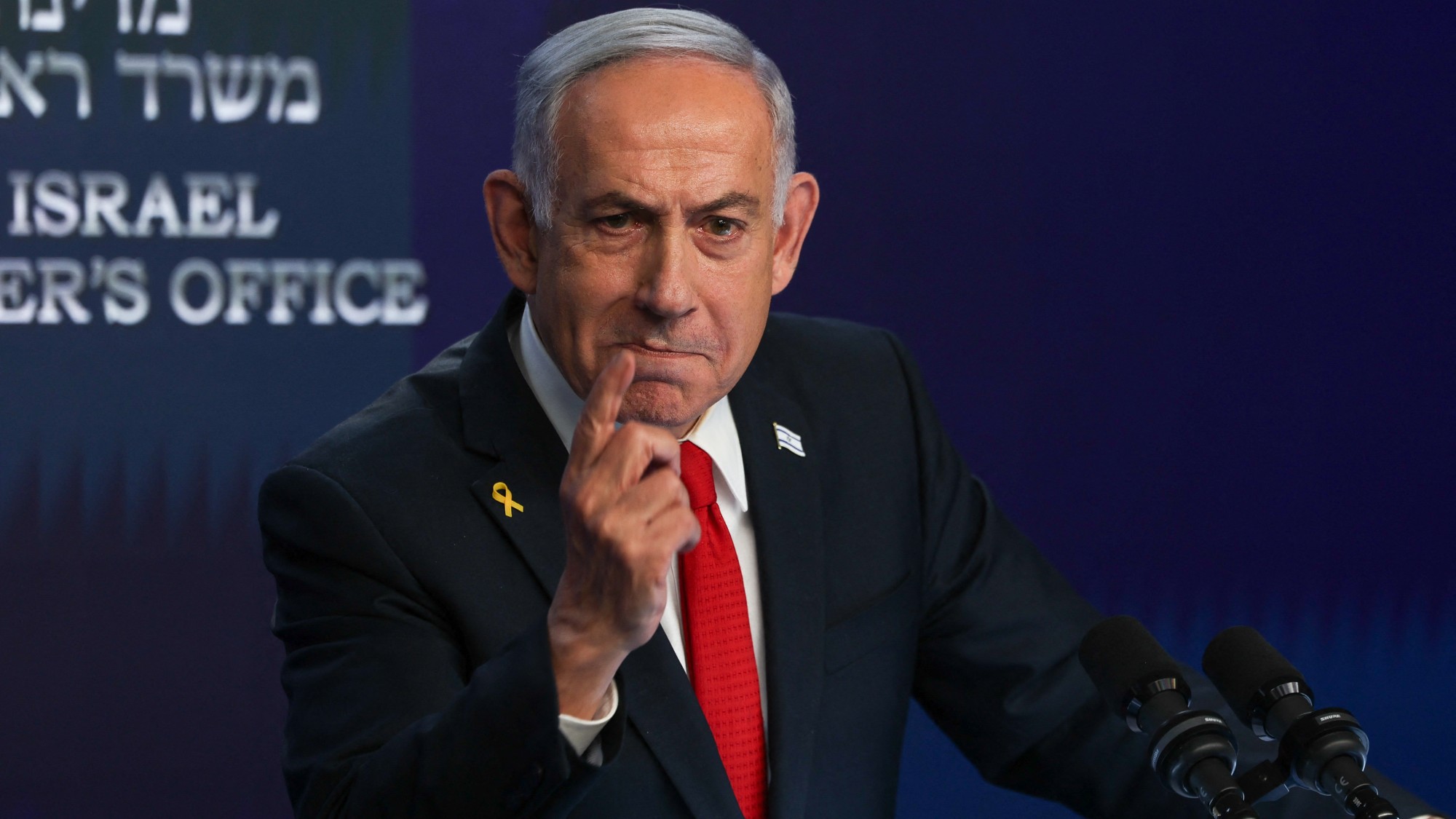What happens if Israel attacks Iran?
Israel is 'ready to strike' and Tehran has plans for counterattacks against the US as nuclear talks appear deadlocked

A free daily email with the biggest news stories of the day – and the best features from TheWeek.com
You are now subscribed
Your newsletter sign-up was successful
Israel appears to be preparing a preemptive military attack on Iran, putting the entire Middle East region on high alert.
An attack by Israel, thought imminent by US and European officials, would derail the ongoing negotiations between Washington and Tehran to phase out Iran's nuclear capabilities.
Iran has threatened to retaliate with a counterattack not only on Israeli targets but also on American military bases in Iraq. "In case of any conflict, the US must leave the region because all its bases are within our range, and we will target all of them," said Iran's Defence Minister General Aziz Nasirzadeh.
The Week
Escape your echo chamber. Get the facts behind the news, plus analysis from multiple perspectives.

Sign up for The Week's Free Newsletters
From our morning news briefing to a weekly Good News Newsletter, get the best of The Week delivered directly to your inbox.
From our morning news briefing to a weekly Good News Newsletter, get the best of The Week delivered directly to your inbox.
What did the commentators say?
Iran's retaliatory plan is an "immediate counterattack" similar to its October 2024 firing of 200 ballistic missiles at Israel, which sent the entire population into bomb shelters, said The Times of Israel.
In a threat to Israel and the US, Tehran has "vowed to unleash an 'unprecedented response'", said Newsweek. A Houthi source also told the news site that the Iran-backed militant group is "at the highest level of preparedness for any possible American escalation" and warned that a broader conflict "will drag the entire region into the abyss of war".
Fear of provoking Iran's allies and proxy forces is a real deterrent to the US. Donald Trump's "America First" policy means he is wary of letting the US get dragged into an uncontained conflict in the Middle East and of seeing his nuclear talks with Iran branded a failure. Last month, Trump said that he had urged Benjamin Netanyahu, Israel's prime minister, not to strike Iran while Washington is pursuing negotiations with the Islamic regime.
But Israel might not be deterred. These threats come after months of rising tensions during which Netanyahu has "pressed Trump to seize on what Israel sees as a moment of Iranian vulnerability", said The New York Times.
A free daily email with the biggest news stories of the day – and the best features from TheWeek.com
The feeling in Israel has been that a unilateral strike on Iran without US support "would be unthinkable", said The Telegraph. Israel appears to have the military capability to undermine Tehran's nuclear programme, but only with US support could they be sure of profoundly damaging it.
The UN nuclear watchdog's board of governors recently found that Iran had broken its non-proliferation agreement for the first time in 20 years and a "damning" report from the International Atomic Energy Agency last week cited a general lack of "co-operation" from Iran and raised concerns over "secret activities and undeclared nuclear material". Those findings put Iran in a weaker position but intelligence chiefs worry that "Trump might still strike a 'soft' deal with Iran that does not guarantee the Jewish state's long-term security – in order to establish his legacy as a peacemaker".
Such a deal might be "weeks away", according to a former Israeli government official quoted by Middle East Eye. There is also "little the US can do to prevent Israel from unilaterally bombing Iran if it chooses to do so". However, Netanyahu would rather "share the political responsibility" of an attack on Iran with the US and will wait while that possibility still exists.
What next?
A sixth round of negotiations between the US and Iran is scheduled for this weekend in Oman but a deal does not appear imminent. President Trump has said that he will not accept any uranium enrichment by Iran, whereas Iran insists that its long-standing nuclear programme is intended only for peaceful purposes.
Trump initiated direct talks with Iran on his trip to the Middle East in May despite opposition from Israel, which remains sceptical of any potential deal with Iran and prefers to continue conducting what Netanyahu's office described as "countless overt and covert operations" to stunt the growth of Iran's nuclear programme.
Critics of the Israeli PM believe he is motivated to remain in a state of crisis to hold together his weakening coalition government until the next election, due by October 2026 at the latest. Most Israelis believe Netanyahu is primarily interested in remaining in power, said The Times of Israel, citing a recent poll. Asked what the PM believes is his main goal, 55% said staying in power, while 36% said returning the Israeli hostages held by Hamas in Gaza.